Delegation of Philosophy Faculty Visited German Universities and Participated in the Forum "China and Europe: Philosophical Comparison and Civilization Dialogue
Oct 23 , 2023From November 6 to 9, Dean of the School of Philosophy of Renmin University of ChinaProf. Zang Fengyu, Prof. Liu Wei, Prof. Xie Linde, Associate Prof. Li Jifen, Lecturer Wei Bo, and PhD student Gu Minde, visited the Faculty of Philosophy, Philosophy of Science and Religious Studies of Ludwig Maximilian University of Munich, Munich School of Philosophy,Faculty of Theology of Humboldt University of Berlin, and the Department of Philosophy of the Free University of Berlin. The delegation met with the editor-in-chief of the German Philosophical Review and the editor-in-chief of the New Series of Studies on Marx and Engels , and participated in the academic forum "China and Europe: Philosophical Comparison and Dialogue of Civilizations".
On the morning of November 6, Dean Zang Fengyu and his delegation held a meeting with Professor Georg Sans, President of Munich School of Philosophy, and Pirmin Stekeler-Weithofer, Editor-in-Chief of Philosophical Review , at Munich School of Philosophy. Both sides introduced each other's teaching and research situation, discussed academic topics of mutual interest, and clarified specific cooperation matters.
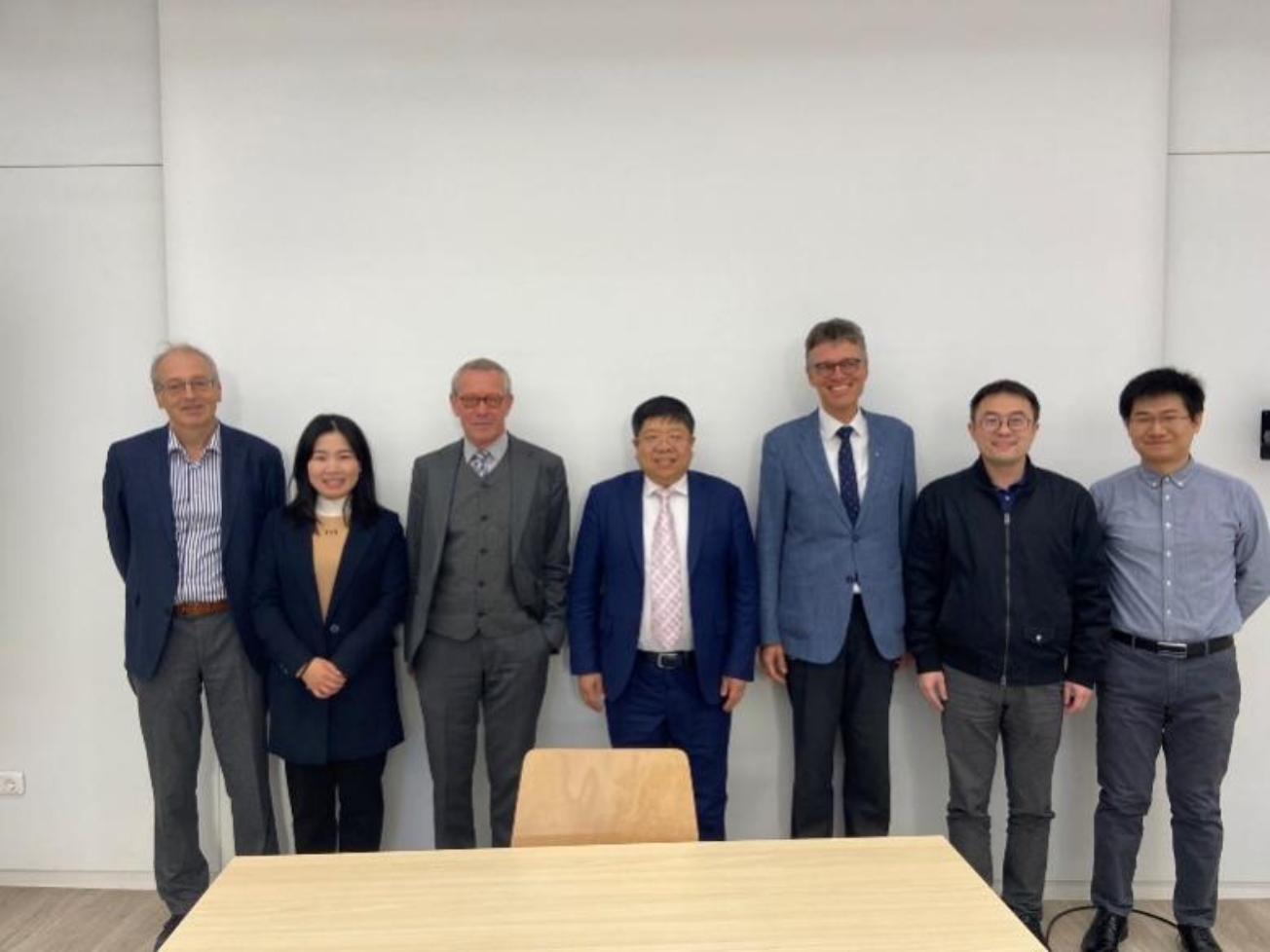
On the afternoon of November 6, Dean Zang Fengyu and his delegation held a meeting with Professor Stephan Hartmann, head of the Department of Philosophy of the University of Munich. Both sides agreed to continue signing the Memorandum of Cooperation and will continue to promote exchanges between teachers and students of both sides. In terms of the construction of co-curricular programs, the two sides discussed in depth specific matters such as credit settings, candidates for lectures and teaching methods.
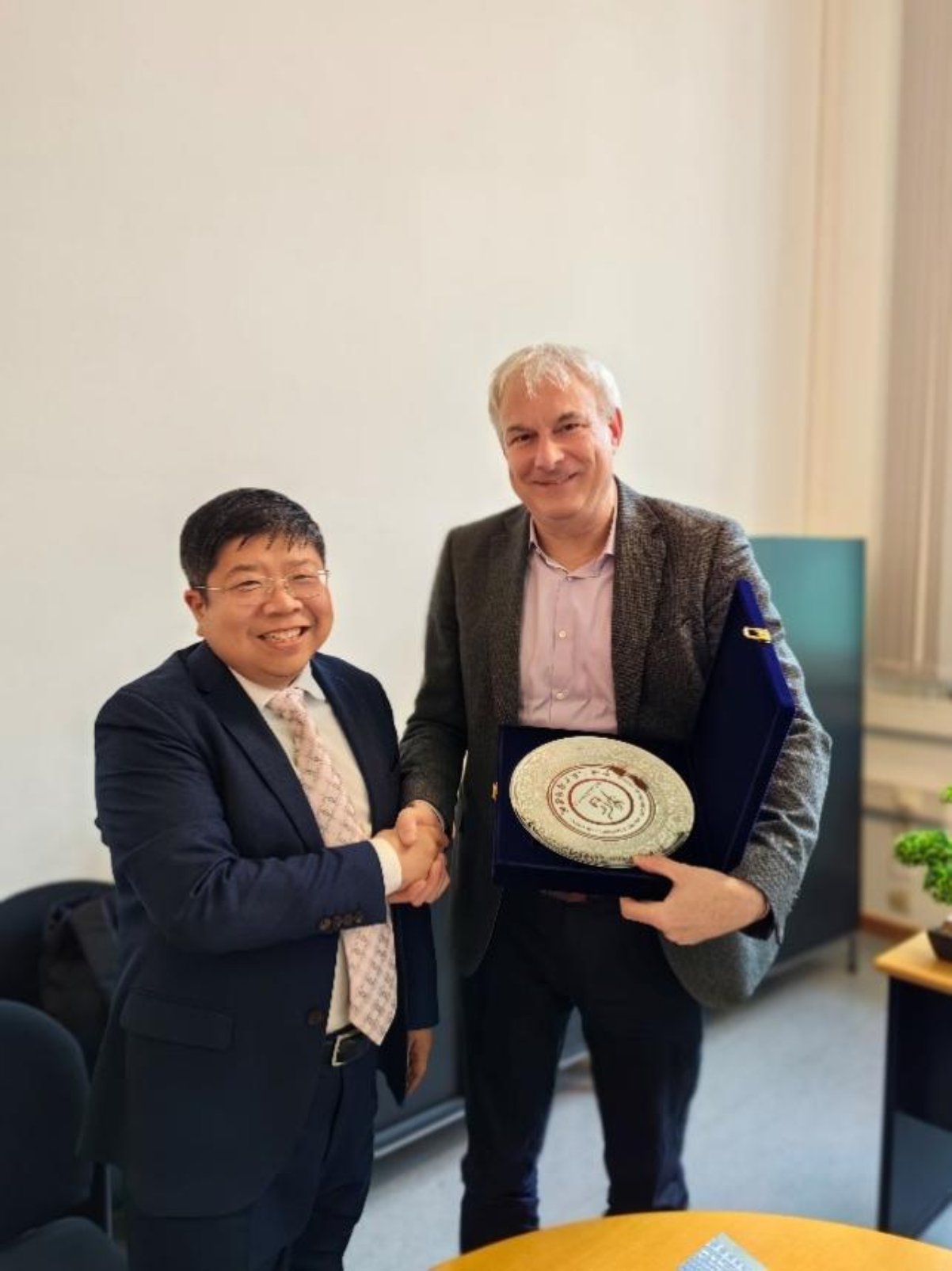
Afterwards, the delegation held a meeting with Hans van Ess, Vice Rector of the University of Munich and Professor of the Department of Sinology. The two sides reviewed the history of cooperation, had in-depth discussions around the continuation of faculty and student exchanges, the signing of a memorandum of cooperation, etc., and reached an agreement on specific matters concerning the construction of common courses.

On November 7-8, 2023, “LMU-China Academic Science Forum”was held at Ludwig Maximilian University of Munich, including a philosophy sub-forum on the theme of "China and Europe: Philosophical Comparison and Dialogue of Civilizations", which was divided into three topics: "Comparison of the Concept of Reason", "Reason and Morality", and "Shaping Modernity". Six teachers and students from the School of Philosophy of RUC shared with foreign scholars their latest achievements in the field of Comparative Philosophy and Mutual Appreciation of Civilizations.
On the morning of November 7, the first phase of the forum was chaired by Prof. Hans van Ess, Vice-Rector of LMU. Prof. Hans van Ess extended a warm welcome to the guests and expressed his expectation for sharing the spiritual feast of philosophical dialogue and civilization exchange between China and Europe, and discussing the profound heritage and inner mechanism of the civilizations of China and Europe together.
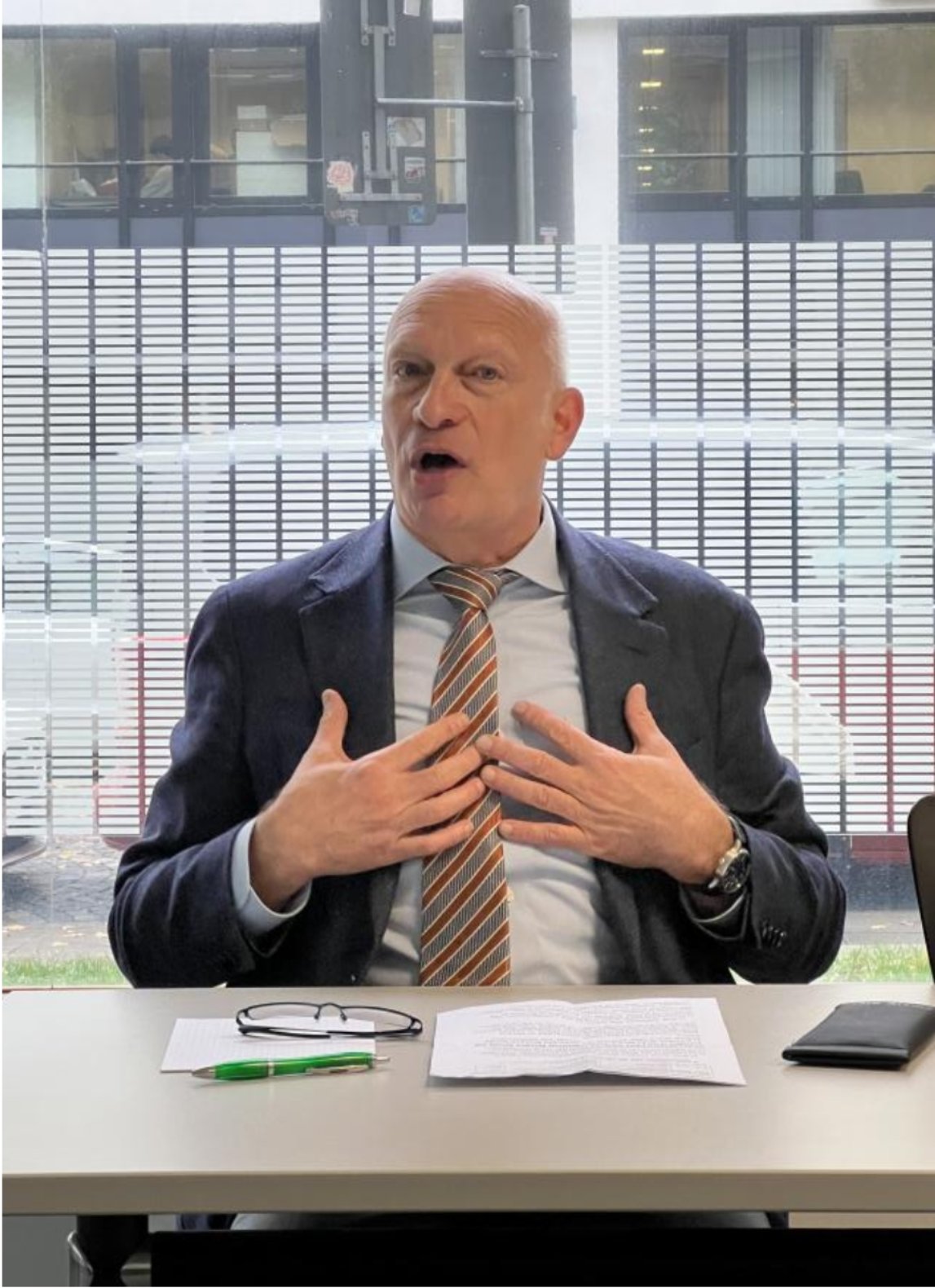
Prof. Zang Fengyu, Dean of the School of Philosophy of RUC, made a presentation on "The Philosophy of Wang Yangming and the Early Spread of Marxist Philosophy in China" in the first phase of the forum, and chaired the second phase of the forum. According to him, The Philosophy of Wang Yangming puts the knowledge gained by seeing and hearing and the knowledge of virtue into practice. Early disseminators of Marxist philosophy in China used The Philosophy of Wang Yangming to understand the practical way of thinking and to explore the role of revolutionary ideals and willpower. Exploring the teleological factors in the early dissemination of Marxist philosophy in China is instructive for understanding the sinicizationof Marxist philosophy and promoting the creative transformation and innovative development of Chinese outstanding traditional culture.
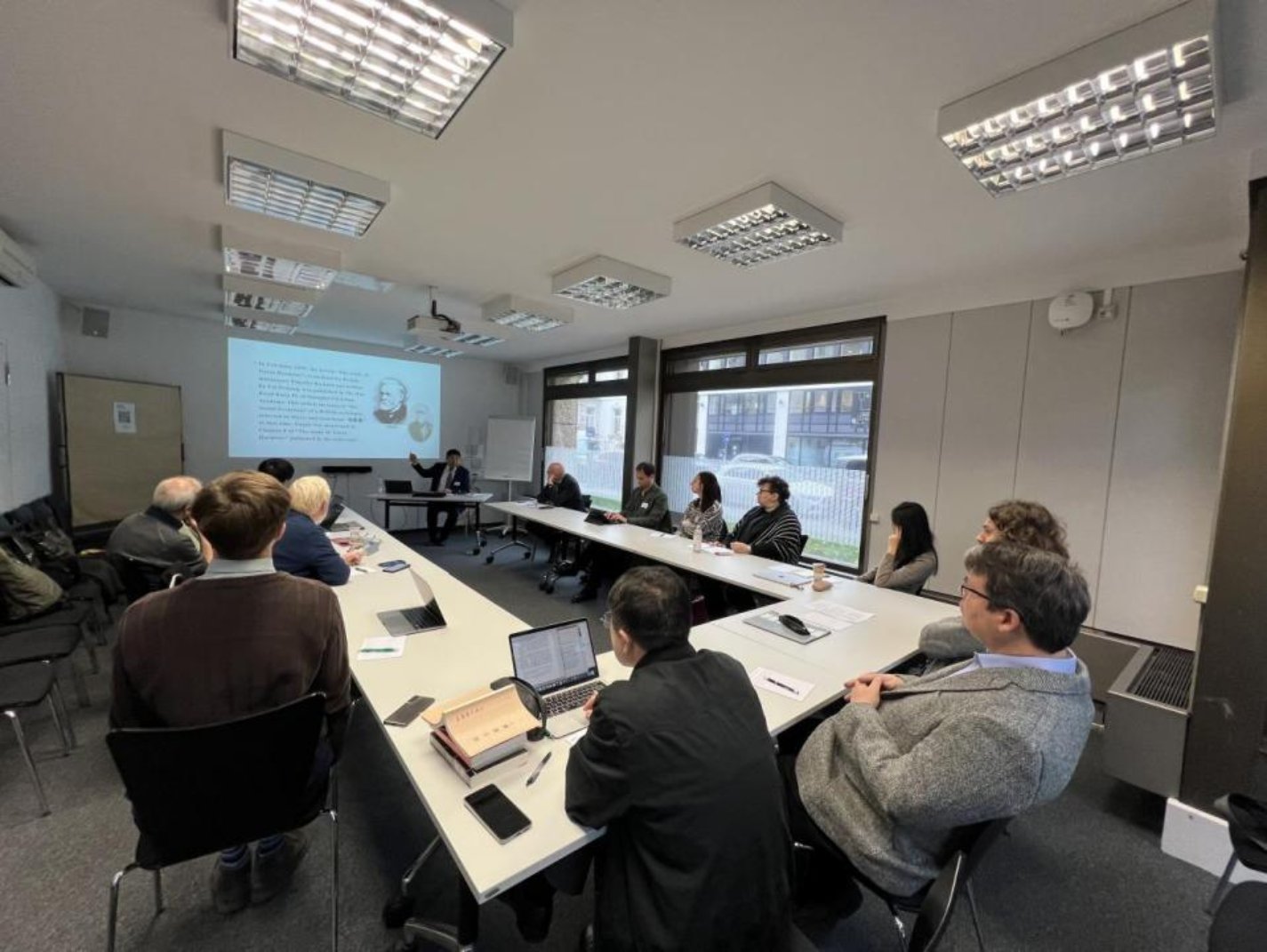
Prof. Liu Wei of the School of Philosophy of RUC, gave a presentation entitled 'Aristotle and Xunzi on Moral Motivation' in the second phase of the Forum and moderated the third phase of the Forum. He discussed the similarities between Aristotle's ethics and Xunzi's philosophy on four concepts related to moral motivation. Through the debate between intellectualism and anti-intellectualism, it can be seen that rationality and desire always permeate each other, and that moral motivation should not be understood in a diametrically opposed way.
Professor Xie Linde of the School of Philosophy, Renmin University of China, gave a presentation entitled 'The concept of equality and modern Chinese thought'. He pointed out that equality is one of the concepts that has guided and driven modern thought in Europe and China. In the 16th and 17th centuries, Chinese political thinkers paid more attention to the idea of equality while criticizing the firmly established social and political theories and practices of Confucianism. These germs of the early Chinese Enlightenment later became important resources for modern Chinese political philosophy.
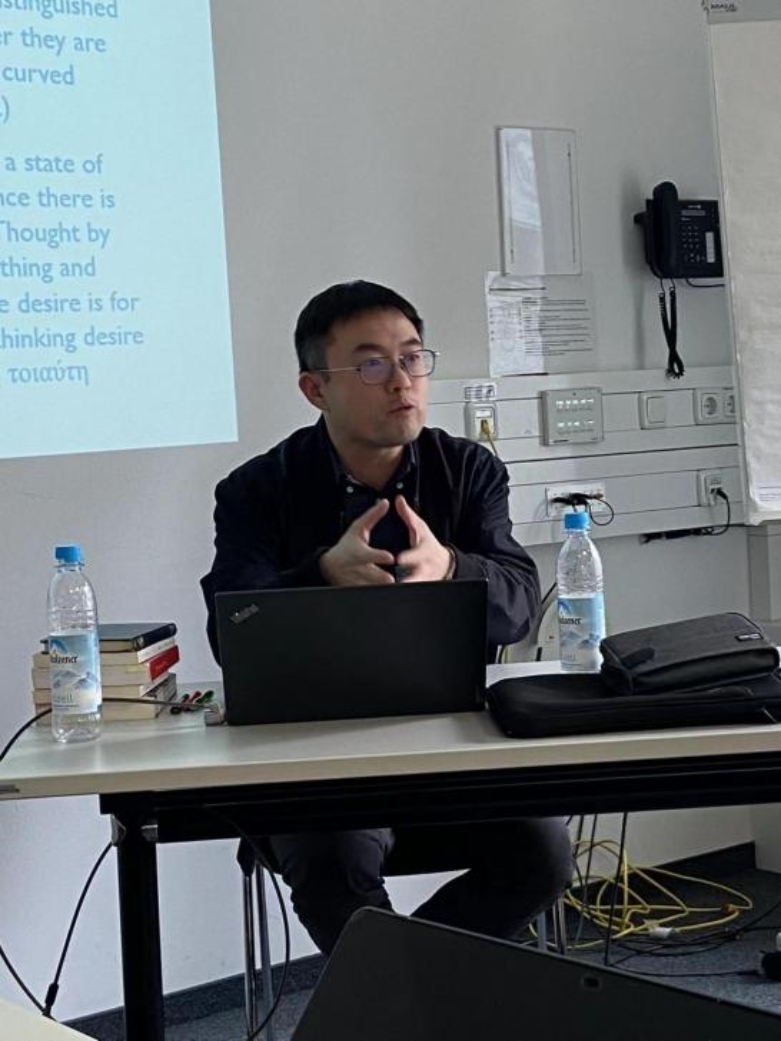
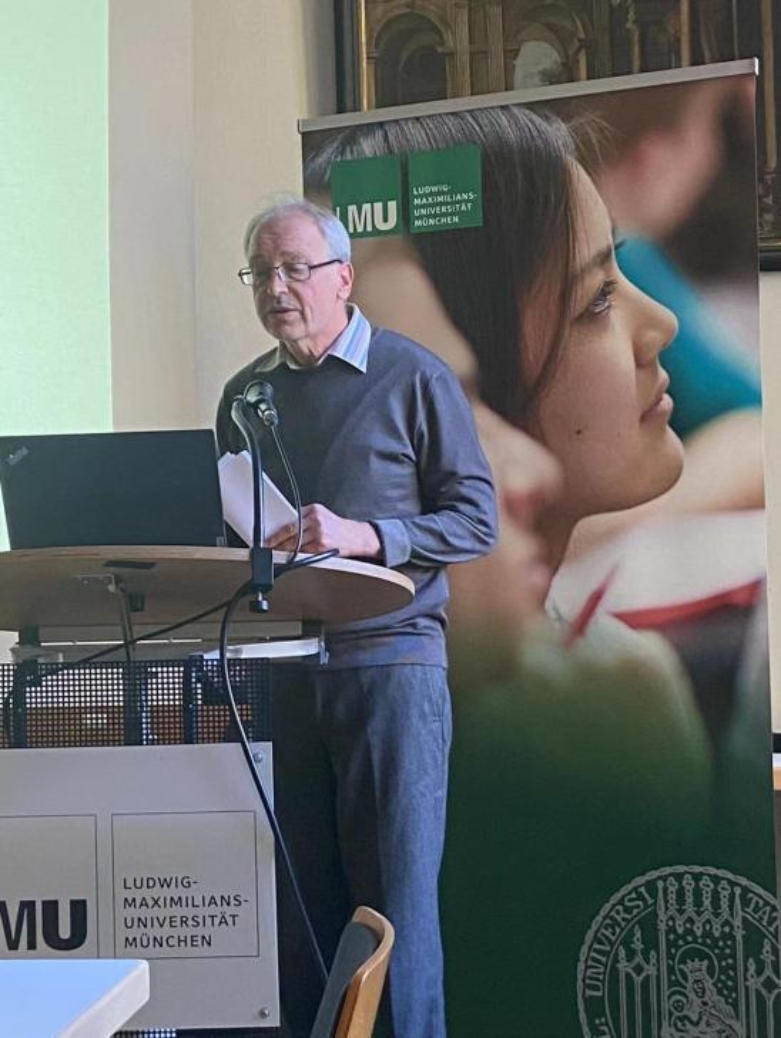
Associate Professor Li Jifen of the School of Philosophy, Renmin University of China, gave a presentation entitled 'Benevolence in Eastern and Western Philosophy' in the third phase and chaired the fourth phase. She argued that Confucianism's idea of the trinity of man, heaven and earth has been a hot topic in environmental ethics in recent years. Human beings have the responsibility to care for nature, to regulate and develop their needs and desires in accordance with the forms of life described by the ancient sages, and to harmonize them with the laws and processes of nature. Only when harmony can be achieved between human beings and nature can the trinity of heaven, earth and human beings be formed.
Lecturer Wei Bo of the School of Philosophy, Renmin University of China, gave a presentation entitled 'The Indoctrination of the Modern Individual in Modern Society'. He argued that the West has a tradition of Christianity and the French Revolution, which nurtured the modern individual. In China, there is the tradition of 'Rural China', and through the exploration of Chinese modernization, China has formed a highly developed system of division of labor and exchange, thus nurturing the modern individual with both subjective freedom and a sense of community.
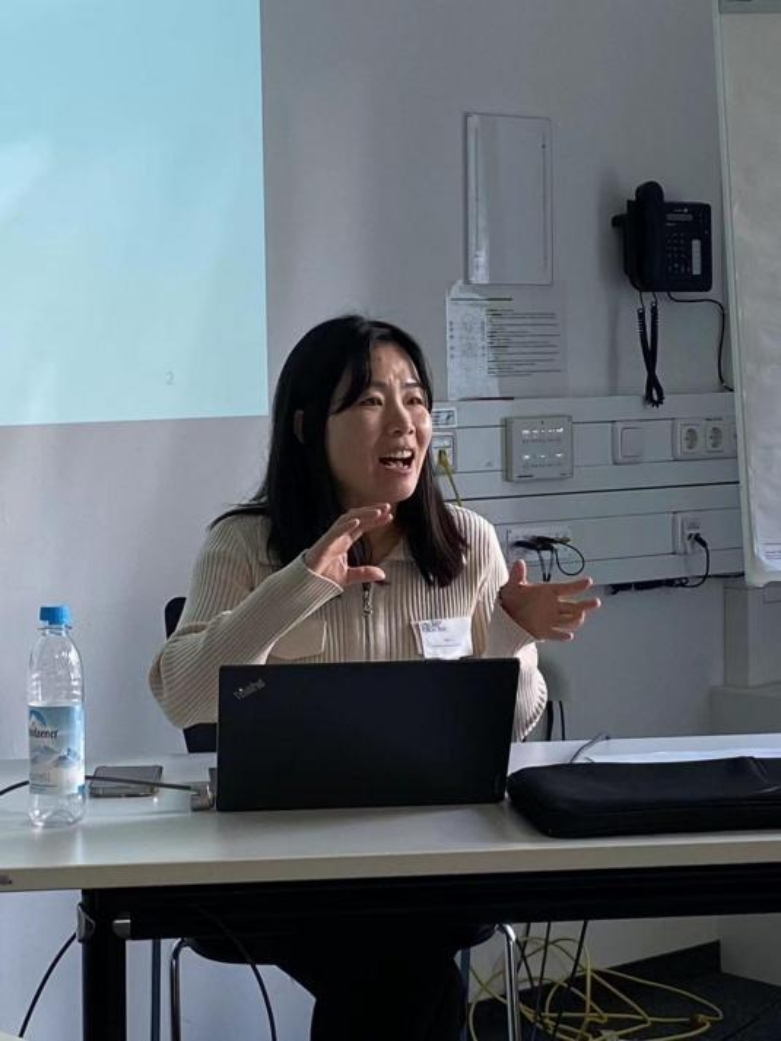
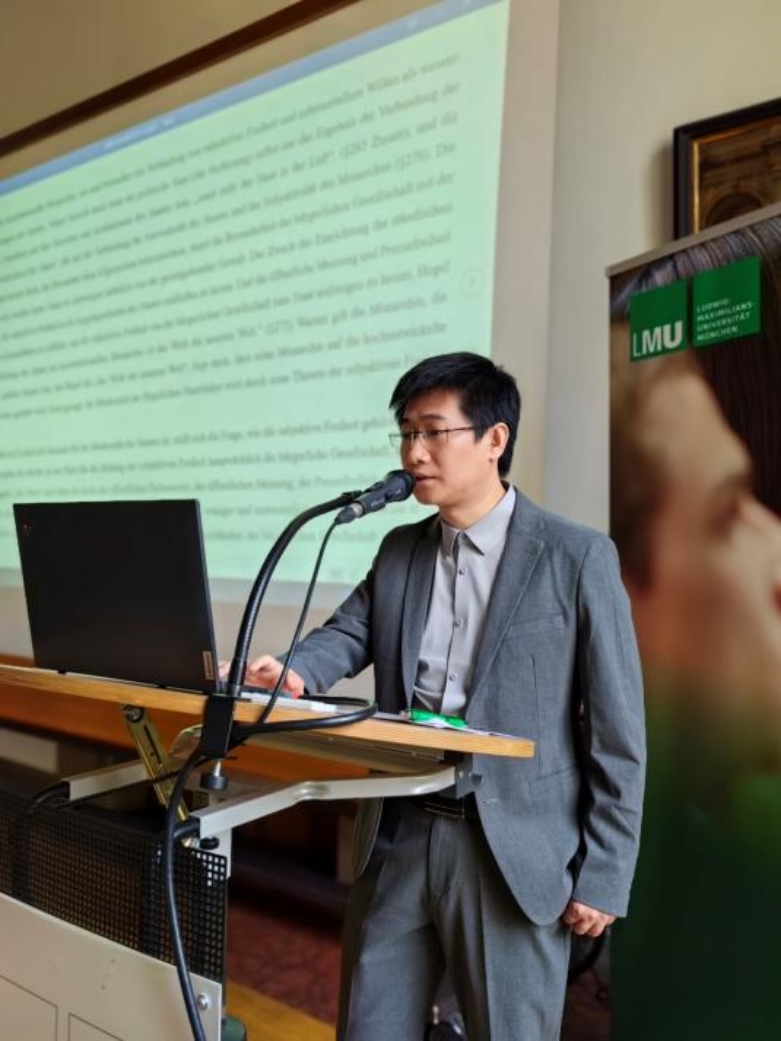
Moritz Kuhlmann, a doctoral candidate at the School of Philosophy of RUC, gave a presentation entitled 'Dialectics in Marx's Early Writings and Classical Chinese Philosophy'. He argued that in Marx's early thought, dialectics involves the relationship between universality and particularity, with the former realizing itself through the latter. A similar understanding of dialectics can be found in Chinese philosophy through Zhu Xi's commentary on The Book of Changes and the ideas in the Zhuangzi.
In this forum, Prof. Christof Rapp, Prof. Sebastian Gäb, Prof. Peter Adamson, and Prof. Robert Yelle of the Department of Philosophy of the University of Munich gave lectures relatively entitled ' Two Paradigms of Reason in Ancient Greek Philosophy' 'Reason in the East, the West, and Everywhere' 'Skepticism Across Borders: the Argument for Animal Difference in Chinese, Greek, and Arabic Philosophy' 'Radical Enlightenment and Secularization: A Short Revisionist History with Reference to Seventeenth-Century England'.
According to Prof. Georg Sans, director of Munich School of Philosophy, the essence of reason in Kant's theory lies in the recognition of the universality of its principles as a formal criterion of justification, and freedom is the conscious following of the laws of reason. Professor Benoît Vermander of the School of Philosophy at Fudan University argues that Chinese philosophers developed a strict program of causality early on, which is hidden in the everyday language of Chinese philosophical debates. For Pawel Trzciakowski, a PhD candidate at the Department of Philosophy at the University of Munich, reason can discover moral norms and thus inspire good behavior.
The conference gathered new ideas on comparative philosophy and dialogue of civilizations between Chinese and European scholars, and the brilliant speeches and heated discussions at the conference enhanced mutual understanding, stimulated the enthusiasm of mutual academic cooperation and exchange, and provided new thinking and impetus for the in-depth dialogue and mutual reference of different philosophical and cultural traditions.
On the morning of November 9, Dean Zang Fengyu and his entourage held a meeting with Prof. Rolf Hecker, President of MEGA Berlin and Editor-in-Chief of New Series of Studies on Marx and Engels, and Prof. Michael Heinrich, Director of MEGA Berlin and Editorial Board Member of New Series of Studies on Marx and Engels. Dean Zang Fengyu introduced the academic tradition and research achievements of the School of Philosophy of RUC in the field of Marxist philosophy. Prof. Hecker introduced the history, style and demand of New Series of Studies on Marx and Engels, and Prof. Michael Heinrich introduced the latest progress of Marx studies in the German academia, and both sides exchanged concrete views on cooperation.
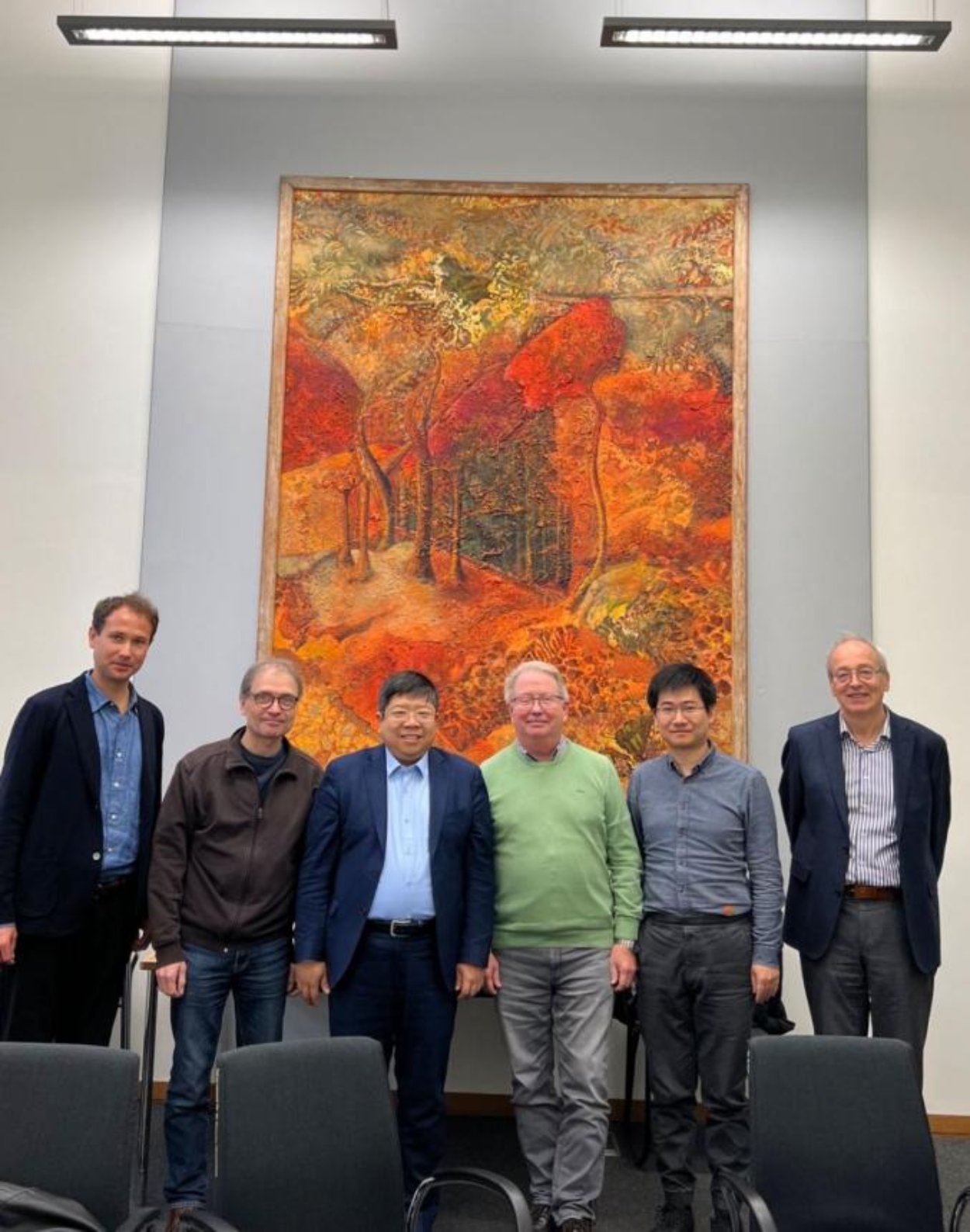
On the afternoon of November 9, Dean Zang Fengyu and his delegation held a meeting with Prof. Judith Becker, Deputy Director of the Theology Department of Humboldt University Berlin, and Prof. Andreas Feldtkeller, in which the two sides had a frank discussion on the development of teacher-student exchanges and other issues.
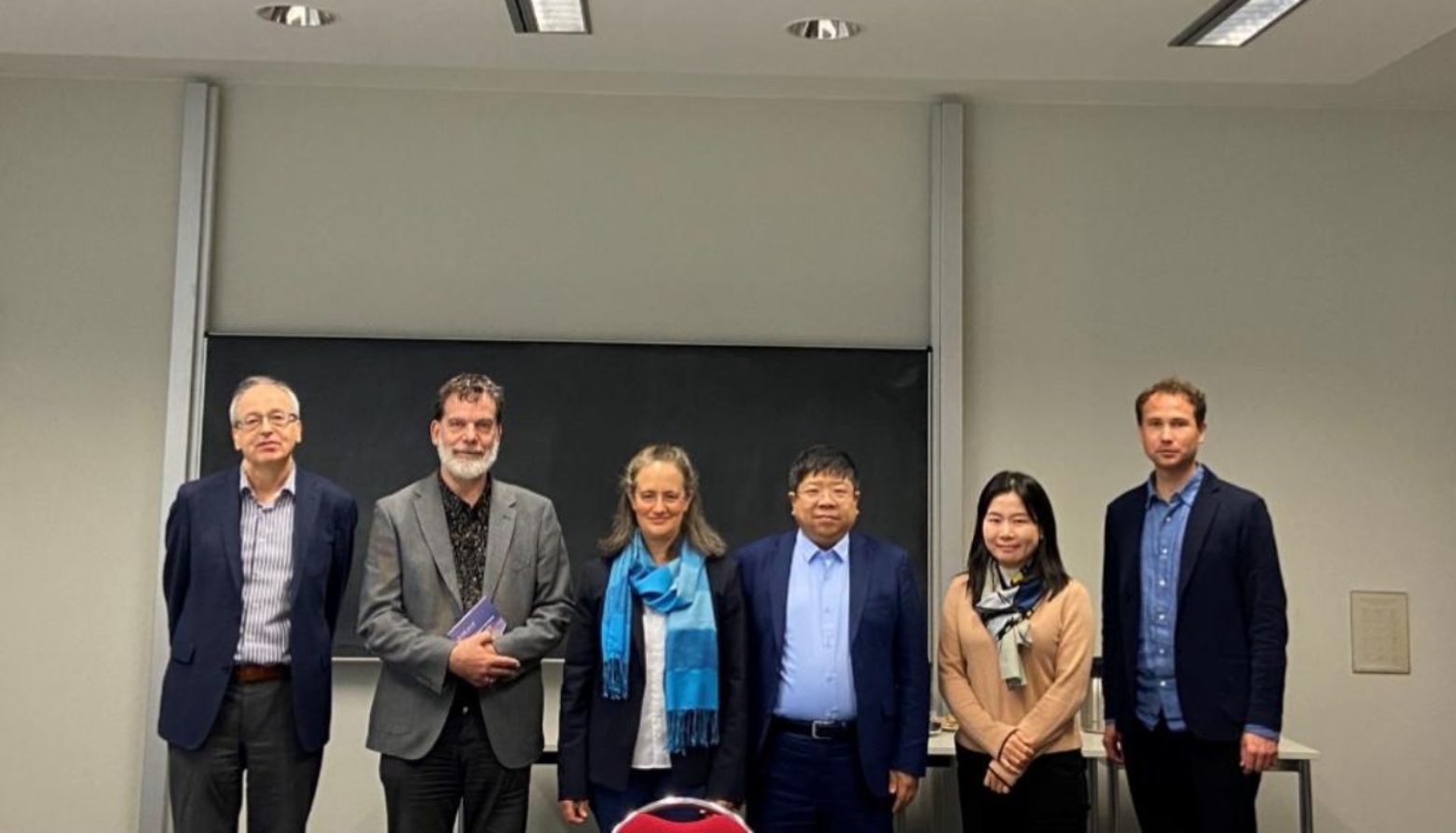
Afterwards, Dean Zang Fengyu and his delegation held talks with the German editor-in-chief of Yearbook for Eastern and Western Philosophy , Prof. Hans Feger of the Department of Philosophy of Free University of Berlin, Prof. Wang Ge, and Dr. Stefan Rummel, Head of Foreign Affairs of Free University of Berlin. The two sides reached an agreement on specific matters such as further co-organizing academic journals, organizing academic conferences, carrying out exchanges between teachers and students, and constructing co-curricular courses.
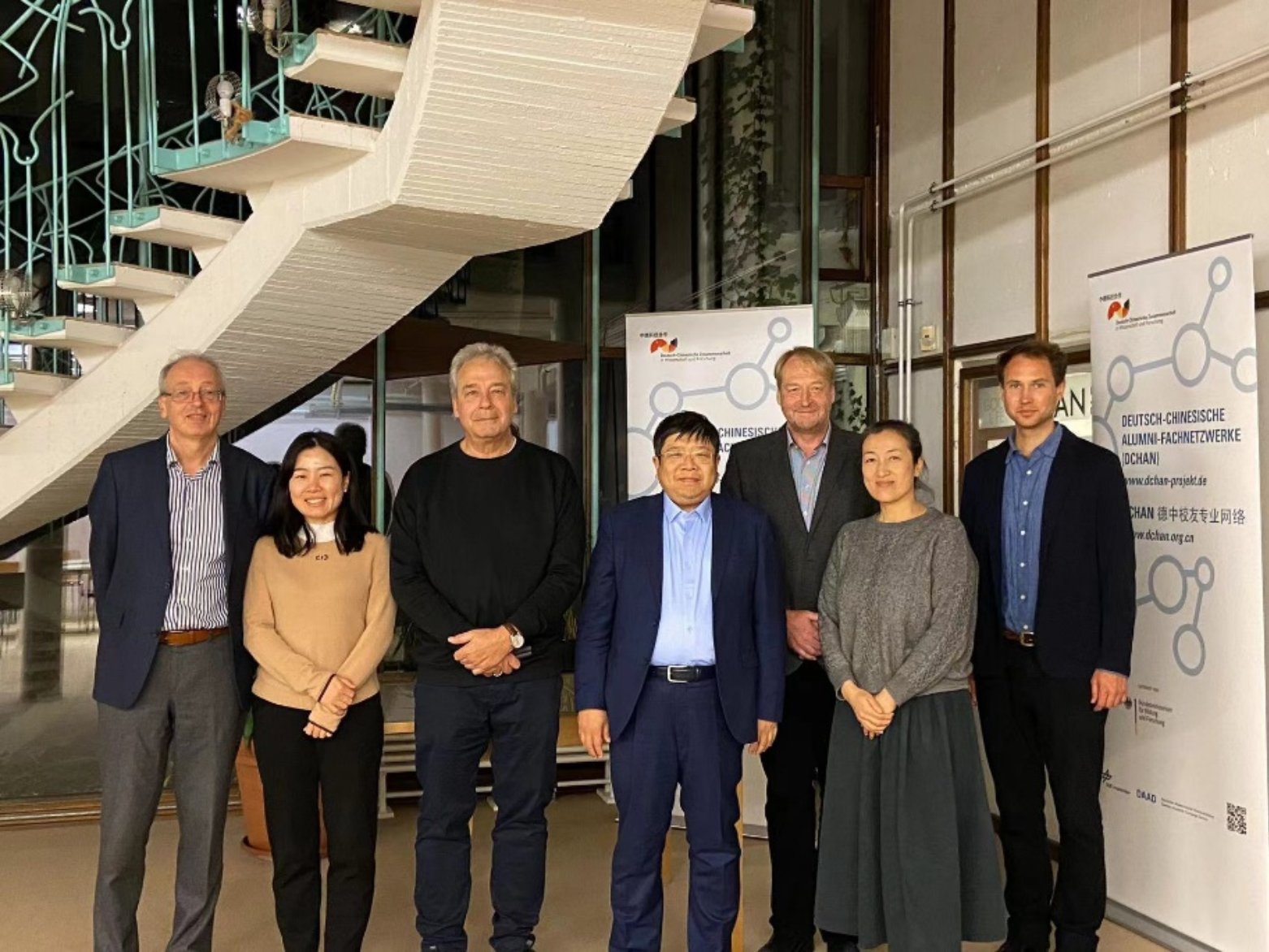
This trip to Germany has continued the tradition of cooperation and deep friendship between the School of Philosophy of Renmin University of China and the philosophy faculties of German universities and German academic journals, opened up new channels and new ways of cooperation between the two sides, and created favorable conditions for the exchanges and cooperation between teachers and students of the two sides.

